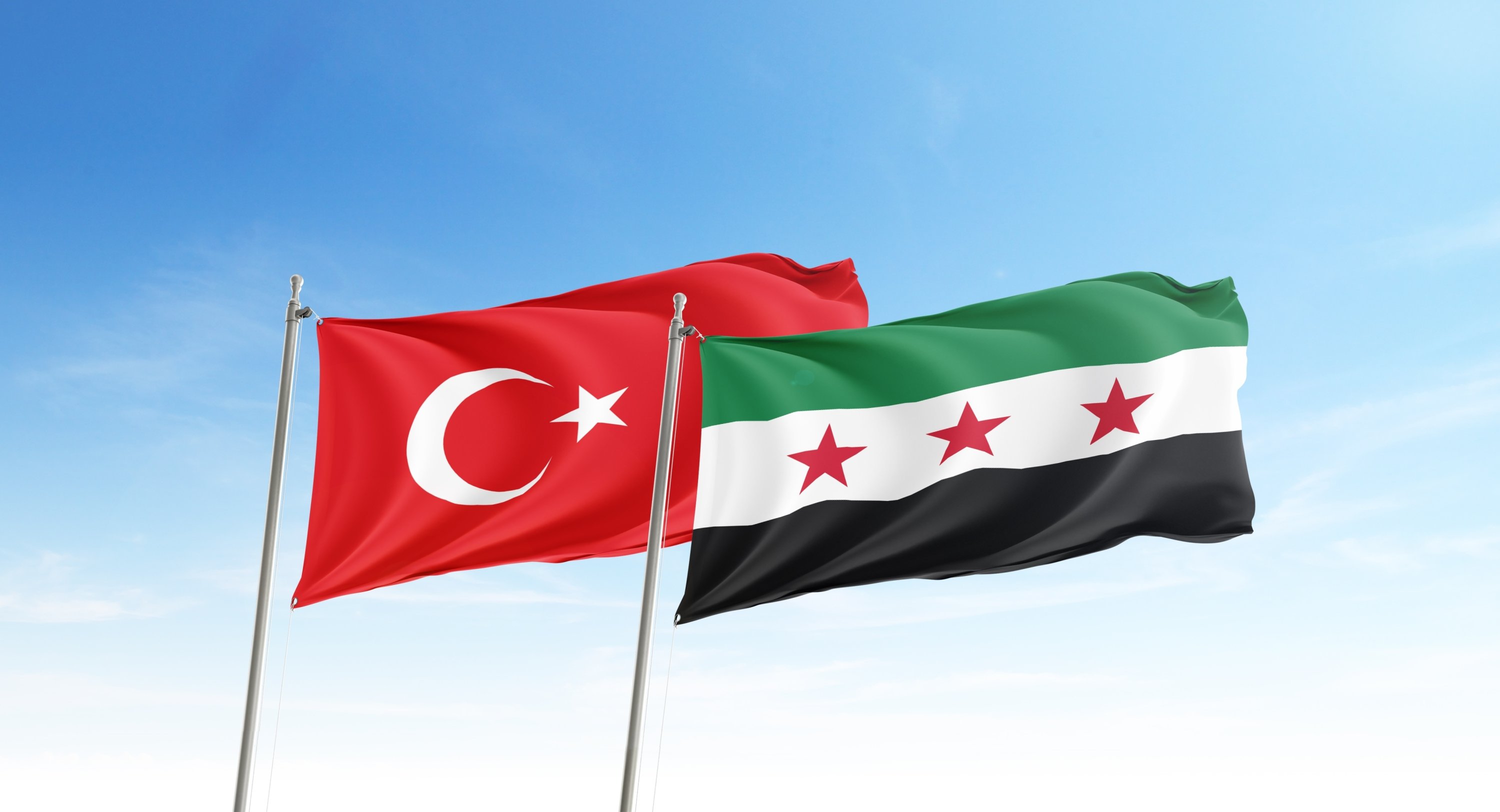TLF Exclusive: Ankara and New Damascus Forge Sweeping Alliance, Aiming to Reshape Eastern Mediterranean
Following the collapse of the Assad regime, high-level diplomatic channels between Ankara and the new Syrian leadership have been buzzing with activity. Turkish intelligence chiefs, foreign ministers, and economic delegations have engaged in a flurry of meetings with their Syrian counterparts, laying the groundwork for what officials describe as a "new chapter" in bilateral relations. This partnership aims not only to rebuild a war-torn Syria but to integrate it into a Turkish-led sphere of economic and security stability.
A New Security Architecture
At the heart of the new alliance lies a robust security and military pact. The Turkish Armed Forces (TSK) have signaled their readiness to provide extensive support to the latest Syrian government, prioritizing the establishment of a unified, professional Syrian army and combating persistent terrorist threats. A senior Turkish defense official, speaking on condition of anonymity, stated that Ankara's primary goal is to "ensure the territorial integrity of a sovereign Syria, free from the malign influence of terrorist groups like Daesh and the PKK/YPG."
This cooperation will involve joint operations in northern Syria to dismantle remaining extremist pockets and secure the border. More significantly, Turkey is reportedly planning to expand its military footprint beyond its current operational zones. Discussions are underway for a potential Turkish military presence in strategic locations, including Damascus and the coastal city of Tartus. Analysts suggest this move is designed not only to mentor the new Syrian army but also to act as a powerful deterrent against external actors, particularly in response to recent Israeli actions in the region.
Powering and Rebuilding a Nation
Hand-in-hand with security stabilization is an aggressive push for economic and infrastructural revival. Recognizing that stability cannot be achieved without prosperity, the two nations are accelerating a series of landmark projects aimed at revitalizing Syria's weakened economy.
The most immediate impact will be felt in the energy sector. A landmark agreement has been reached to construct a 400 kV high-voltage electricity line from Turkey's Reyhanli province to Harem in Syria. Simultaneously, a natural gas pipeline will run from Kilis in Turkey to Aleppo, initially supplying six million cubic meters of gas daily. Turkey has already begun providing Syria with two billion cubic meters of gas annually, a volume sufficient to generate 1300 megawatts of electricity. Officials project that this will double the daily electricity availability for Syrian citizens from a mere four hours to at least eight, a critical step for restarting factories, powering irrigation for agriculture, and improving the quality of daily life.
The reconstruction agenda extends to vital transportation links. Turkey has committed to rebuilding and modernizing key international airports in Damascus and Aleppo, including the installation of advanced radar systems that could have dual civilian and military applications. In a move laden with historical symbolism and strategic importance, there is a bold ambition to revive the Ottoman-era Hejaz Railway, aiming to establish a direct rail link between Istanbul and Damascus in the future. The initial phase will focus on restoring the crucial Gaziantep-Aleppo line. Furthermore, Turkish construction firms are poised to lead the rehabilitation of the strategic M4 and M5 highways, which serve as the country's economic arteries.
Unlocking Trade and Investment
On the economic front, Ankara is moving to restore and dramatically expand its trade relationship with Damascus. With Turkish exports to Syria already standing at $2.2 billion, the goal is to create a seamless economic space. A new economic partnership agreement is being negotiated, which will feature gradual tariff reductions and simplified customs procedures.
Turkish and Syrian officials are also working to renew vital bilateral treaties on investment protection and the prevention of double taxation, aiming to create a secure environment for Turkish businesses to invest in rebuilding Syria's industrial zones. "We are calling on our business community, including the Syrian diaspora investors who found a home in Turkey, to lead the charge in rebuilding their homeland," a Turkish trade official remarked. "We also urge our partners in the Gulf and across the Islamic world to join us in this monumental task."
This economic vision is being cemented on the ground. A recently signed memorandum of understanding will finally resume direct international road transport between the two countries. This eliminates the costly and time-consuming process of transshipping cargo at the border, promising faster, cheaper trade. Crucially, the agreement facilitates transit operations, positioning Syria as a land bridge connecting Turkey not only to its markets but also to Jordan and the Gulf countries.
Drawing New Lines in the Mediterranean
The most geopolitically significant element of the burgeoning partnership is occurring behind closed doors. Turkish and Syrian officials are reportedly engaged in secret negotiations to delineate their maritime boundaries in the Eastern Mediterranean. Turkish authorities are drafting an Exclusive Economic Zone (EEZ) agreement with Syria. This move would formalize their shared naval border and significantly bolster Turkey's legal and political standing in the contentious region, particularly regarding the interests of the internationally unrecognized Turkish Republic of Northern Cyprus.
This comprehensive, multi-layered cooperation framework represents more than just aid or assistance; it is the blueprint for a strategic realignment, with Turkey positioning itself as the indispensable partner in Syria's rebirth. As the new government in Damascus works to consolidate its authority, this deep and expanding alliance with Ankara will undoubtedly be the central pillar of its reconstruction and its new identity on the world stage.
Photo: Daily Sabah
